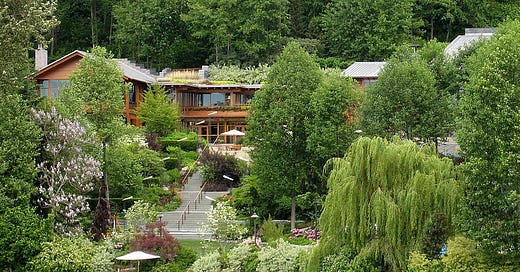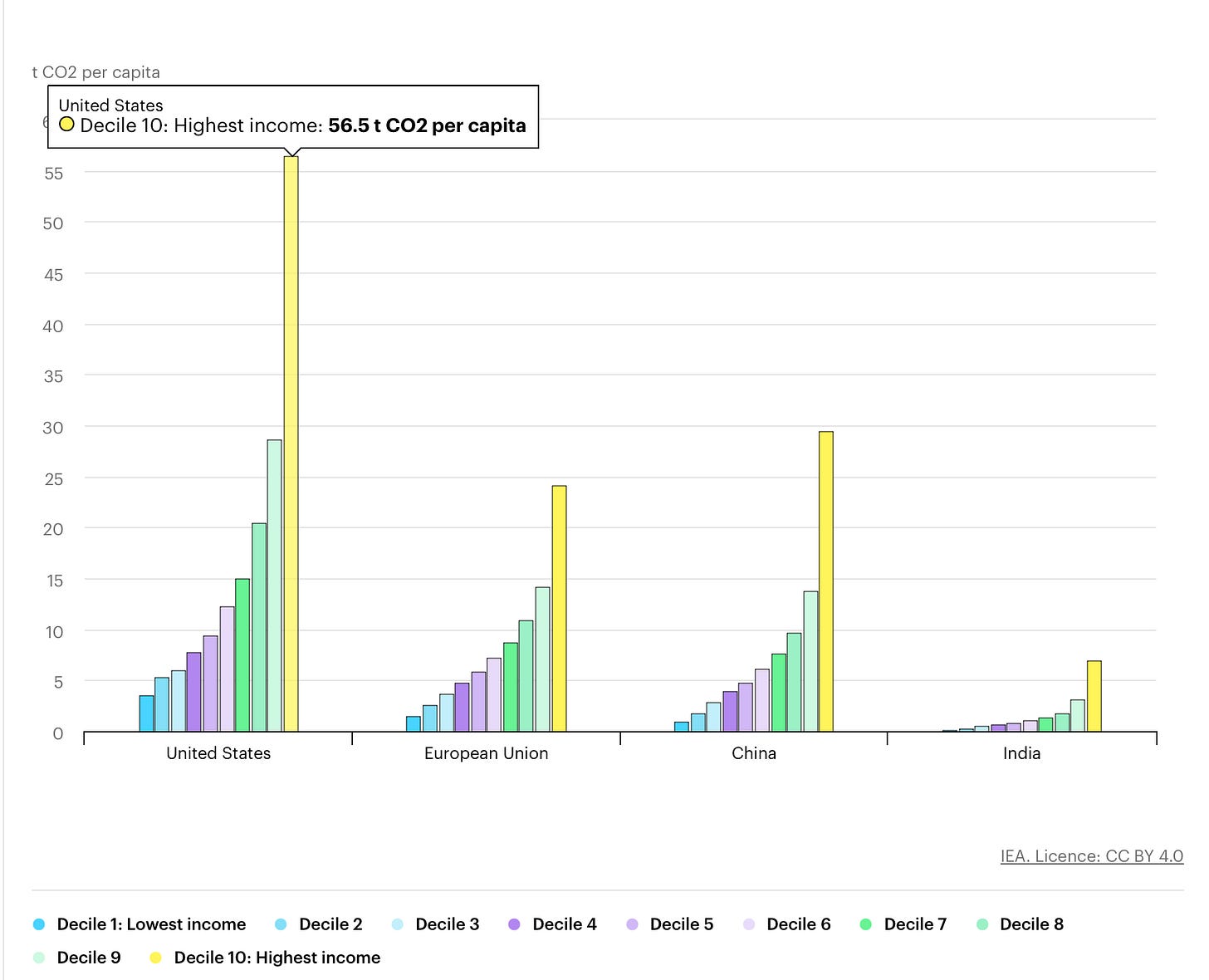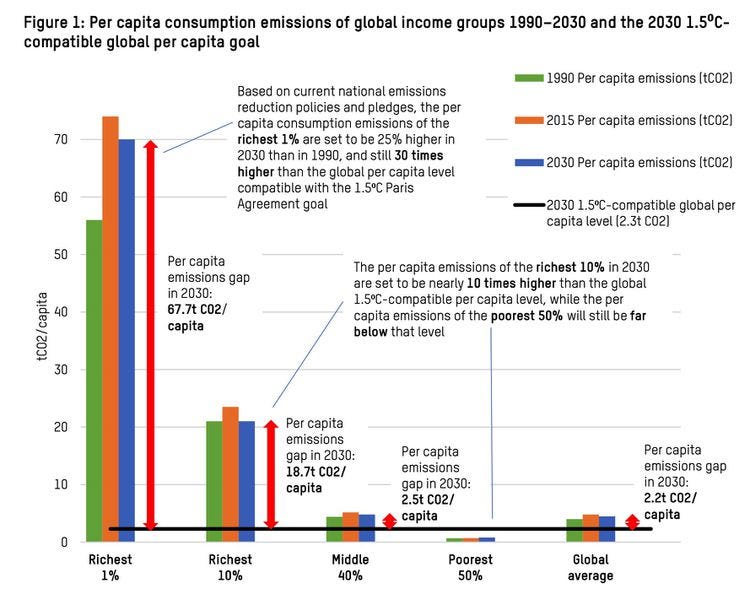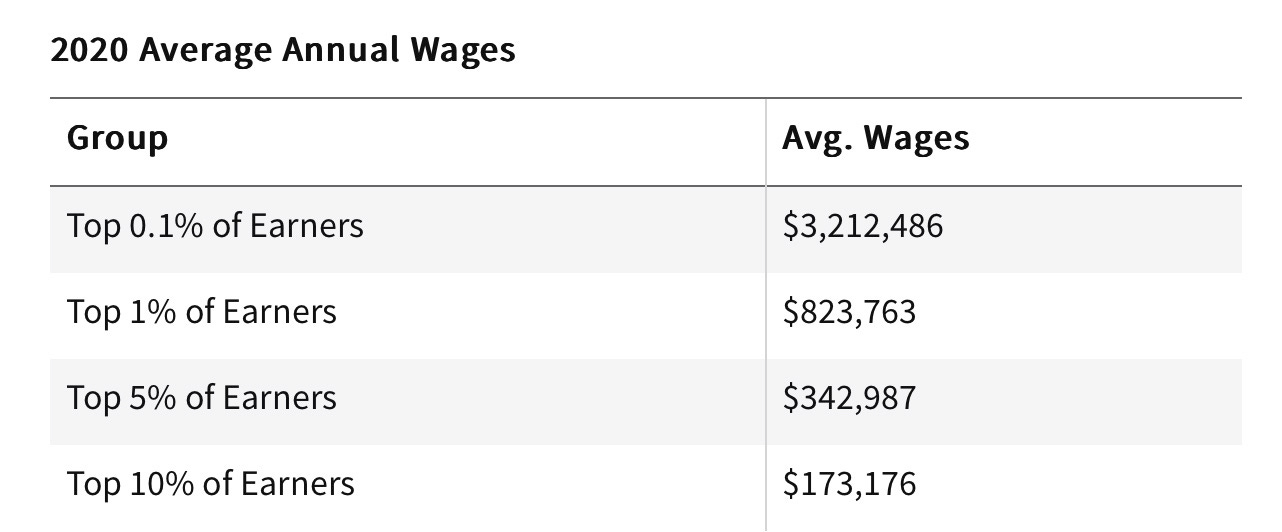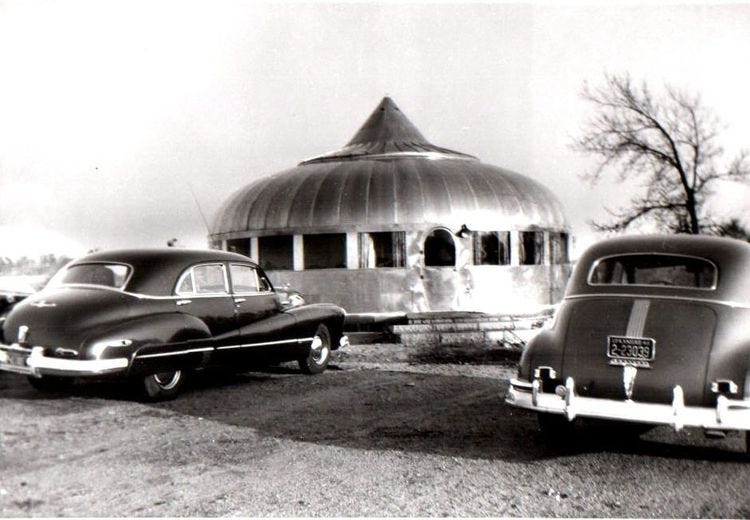Bill Gates doesn't think much of a 1.5 degree lifestyle
He doesn't think telling people they can't eat meat or have a "nice house" will solve anything. But perhaps he is just talking to the wrong people.
In a recent interview with Bloomberg Green’s Akshat Rathi, Bill Gates, the fourth richest man in the world and an important philanthropist, suggested that people are unwilling to change their lifestyles to help solve the climate crisis, and we shouldn’t even bother asking.
"Anyone who says telling people to stop eating meat or wanting to have a nice house will basically change human desires, I think, that is too difficult. You can make a case for it, but I don't think it's realistic for that to play a central role."
In another interview given in India, Gates said that the climate crisis would not be solved by by personal choices such as people giving up meat.
“Will all Indians become vegetarians? Will all Americans become vegetarians? I wouldn’t want to count on it. Anybody wants to evangelize that, they’re welcome to.”
One might point out that according to Statista, "24 percent of Indians were vegetarians and 18 percent were selective meat eaters. Similarly, nine percent were vegans while around eight percent were pescatarians." If the rest of the world ate like Indians, we wouldn't have a serious problem with agricultural emissions.
Gates has written about his own approach to solving the climate crisis in his book “How to Avoid a Climate Disaster.” In it, he says, “I’m a technophile. Show me a problem, and I’ll look for technology to fix it.” I reviewed the book for Corporate Knights Magazine and concluded that all his techno-fixes were a form of what Alex Steffen called “predatory delay” where we are promised a glorious future and don’t have to worry about doing much now. I wrote in 2021 (some of the names have changed since then):
"It lets Toronto Mayor John Tory pour a billion dollars of concrete into the Gardiner Expressway or Ontario Premier Doug Ford push a highway through the greenbelt because “don’t worry, we will have electric cars.” It lets Jason Kenney and Justin Trudeau keep boiling rocks in Alberta because “don’t worry, we will have a hydrogen economy.” It lets Gates keep flying his private jet because he will be able to buy sustainable fuel. It lets us wait for some deus ex machina to drop out of the sky and save us, instead of actually giving anything up or making changes in our lives or economies now."
Make the rich pay
Gates avoids discussing that according to the International Energy Agency, the top 10% of emitters were responsible for almost half of global emissions. And they have the money to do something about it; the IEA writes:
“The richest group often has the largest financial means to adopt energy-efficient and low-emissions solutions that involve high upfront costs. In doing so, they form the initial customer base that can help enable the manufacturing of these technologies to be brought to scale. For example, a large share of electric vehicles were purchased by high-income individuals at first, but as sales increase with models at varied price points, EVs are becoming more ubiquitous.”
Another study by Tim Gore of The Institute for European Environmental Policy (IEEP) noted that the richest 1% (about 80 million people worldwide and including Bill Gates) have increased their emissions by 25% in the last 30 years. Gore concludes:
“To close the emissions gap by 2030, it is necessary for governments to target measures at their richest, highest emitters – the climate and inequality crises should be tackled together. That includes both measures to constrain luxury carbon consumption like mega yachts, private jets and space travel, and to curb climate-intensive investments like stock-holdings in fossil fuel industries."
Bill Gates is not wrong in suggesting that getting everyone to change their way of life is hard. But perhaps we don’t have to; perhaps we should just be going after Bill Gates and others like him who are responsible for such a high proportion of emissions. Phillipa Nuttall quotes economist Ann Pettifor in the New Statesman": “The green movement has lost its way by making us feel we are all equally responsible for the [climate] crisis.”
“One reason we are “paralyzed” and unable to make the shift necessary to halt climate change is that “the idea of asking millions of people overnight to transform their lifestyles is hugely daunting.” This approach is dangerously misguided, she believes. Instead, she backed the call by UK climate scientist Kevin Anderson to focus on the wealthiest 10 percent, responsible for 50 percent of global emissions – and especially the top 1 percent.” By concentrating on frequent fliers, big yacht and private jet owners, “we could bring down emissions massively, very quickly” and make the rest of us feel this was a fair solution, she said.
Pettifor thinks it’s wrong that middle-class people are being asked to cut back when “the threat of climate change is largely because “a very powerful section of the population [is] massively over-emitting”.
So who is in the 1% or 10% or the 0.1% that owns all the yachts and jets? A lot of people who could afford to buy an electric car or a heat pump if they wanted to. As I found when I wrote my book Living the 1.5 Degree Lifestyle, it’s easier to reduce your carbon emissions when you can afford to fix your house, live in a walkable community, work from home, or buy a nice Gazelle e-bike. These are people who could afford insulation instead of freezing in the dark.
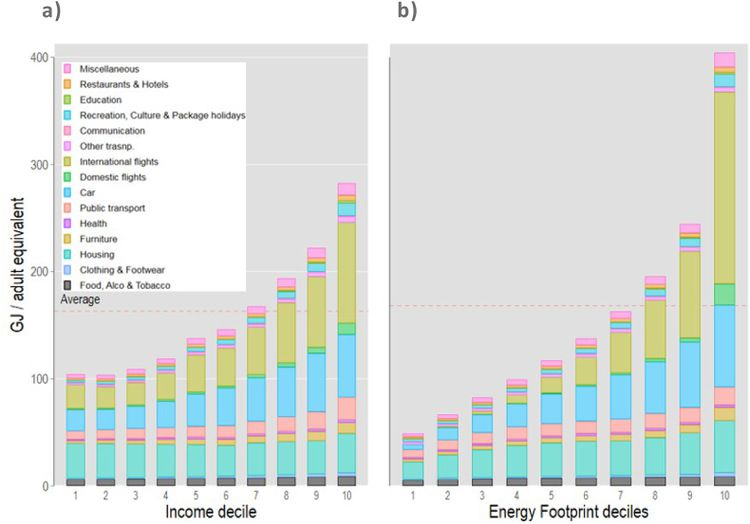
Flying is a big issue. A recent study in the UK found that the richest 10% of the population emitted more carbon just from international flights than more than half the British population did just living. As Josh Gabbatis of Carbon Brief put it, "Car journeys and flights taken by the richest British people—especially 'white, wealthy middle-aged men'—used more energy that year than 60% of the population got through in total." This is likely true everywhere. How much you fly and what you drive are the great separator, almost the definition of wealth. As you get richer, it becomes even more extreme; As writer Indrajit Samarajiva noted,
"As you get rich, you stop taking the bus, you drive a car, you drive a ‘sports’ car. The less efficient your car is (Lambo, SUV, cars following you) the more it signals wealth. As you get richer, you fly more, you fly private, and you begin emitting hideous amounts of carbon. And this is cool. This is desirable. This is #goals."
Or, as I wrote earlier, you buy big stupid houses. All of which brings us back to Bill Gates. He can keep investing in mini-nukes and carbon capture and proposing high tech fixes, but we would reduce our carbon emissions a lot more quickly if the top 10% simply didn’t burn so much fossil fuel in big cars, big houses and big trips. Samarajiva writes that burning fossil fuels is what they do:
"The fact is that in modern capitalist society, high status is high carbon. It’s not a coincidence that the rich emit hideously more—that is wealth: the capture, use, and abuse of energy.”
Bill Gates worries that it’s hard to tell people they can’t have a nice house or eat meat. So don’t; instead, go after people eating Salt Bae gold leaf steak and flying between mansions. Perhaps it’s time for a big honking progressive carbon tax.
In other news: Happy American Pi Day
Americans do dates MM/DD/YYYY, which makes tomorrow 3.14, the first 3 digits of Pi. I wrote a fun celebration of round buildings on Pi day a few years ago: "Mr. Fuller, Why Would You Build a Round House?" The rest of the world will have to wait until July 22 (22/7) to get a close approximation of Pi; I will bake a fresh one then.
